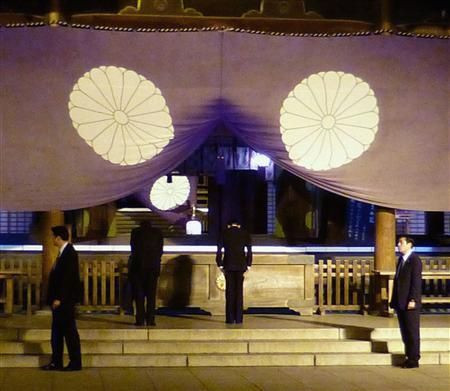South Korean Minister Cancels Japan Visit Over Controversial War Shrine Rekindling Historical Animosities

South Korea’s foreign minister canceled a trip to Japan on Monday after Japanese cabinet ministers visited a controversial war-linked shrine, seen as a symbol of Japan’s military history.
On Sunday, two Japanese cabinet ministers, including Deputy Prime Minister Taro Aso, visited the Yasukuni Shrine, where 14 Japanese leaders convicted as war criminals by an Allied tribunal are honored. Japan’s nationalist Prime Minister Shinzo Abe made a ritual offering, but did not visit the shrine, the BBC reported.
"We are disappointed," a South Korean government official told Reuters news agency.
"Through a diplomatic channel, we sent a message several times that we did not want any visit to the shrine before our minister's trip," the unnamed official said.
South Korean Foreign Minister Yun Byung-se had aimed to discuss the direction of relations with his Japanese counterpart during his planned visit, the official said.
"It is now almost impossible to have a constructive conversation," the official said, referring to the decision to cancel the trip.
China also objected to the incident saying Japan should deal with its past nationalistic aggression.
Chinese Foreign Ministry spokeswoman Hua Chunying said Japan's relations with its neighbors were dependent on its acceptance of its history.
“Japan must face up to its history of nationalist aggression,” and respect the feelings of victims, the Chinese spokeswoman, Hua Chunying, told a daily news briefing, as reported by Reuters.
"We believe that only when Japan attains a deep understanding of its past history can it open up its future and develop a cooperative relationship with other Asian countries," she said.
Japan's top government spokesman Yoshihide Suga said the ministers visited the shrine "as private individuals,” adding that the issue should not “impact diplomacy,” the BBC reported.
The ties between Seoul and Tokyo deteriorated last year after then-South Korean President Lee Myung-Bak made a visit — the first official visit by an incumbent South Korean president — to a tiny disputed set of islands known as Dokdo in Korea and Takeshima in Japan.
Similar to Japanese ministers’ Sunday visit to the Yasukuni Shrine, Lee’s visit to the islands rekindled historical animosities stemming from Japan’s 1910-1945 occupation of Korea during which Korean women were forced to serve as sex slaves for Japanese soldiers.
Though South Korea’s newly-elected President Park Geun-hye has called for “reconciliation and cooperation” and a spokesman for Abe has said South Korea is Japan’s “most important neighbor,” the diplomatic exchanges between the two nations continue to be bogged down by sensitive issues, primarily Japan’s apology to Korea’s so-called “comfort women.”
There were believed to be around 200,000 "comfort women," mostly Koreans abused by the Japanese troops during World War II.
© Copyright IBTimes 2025. All rights reserved.






















